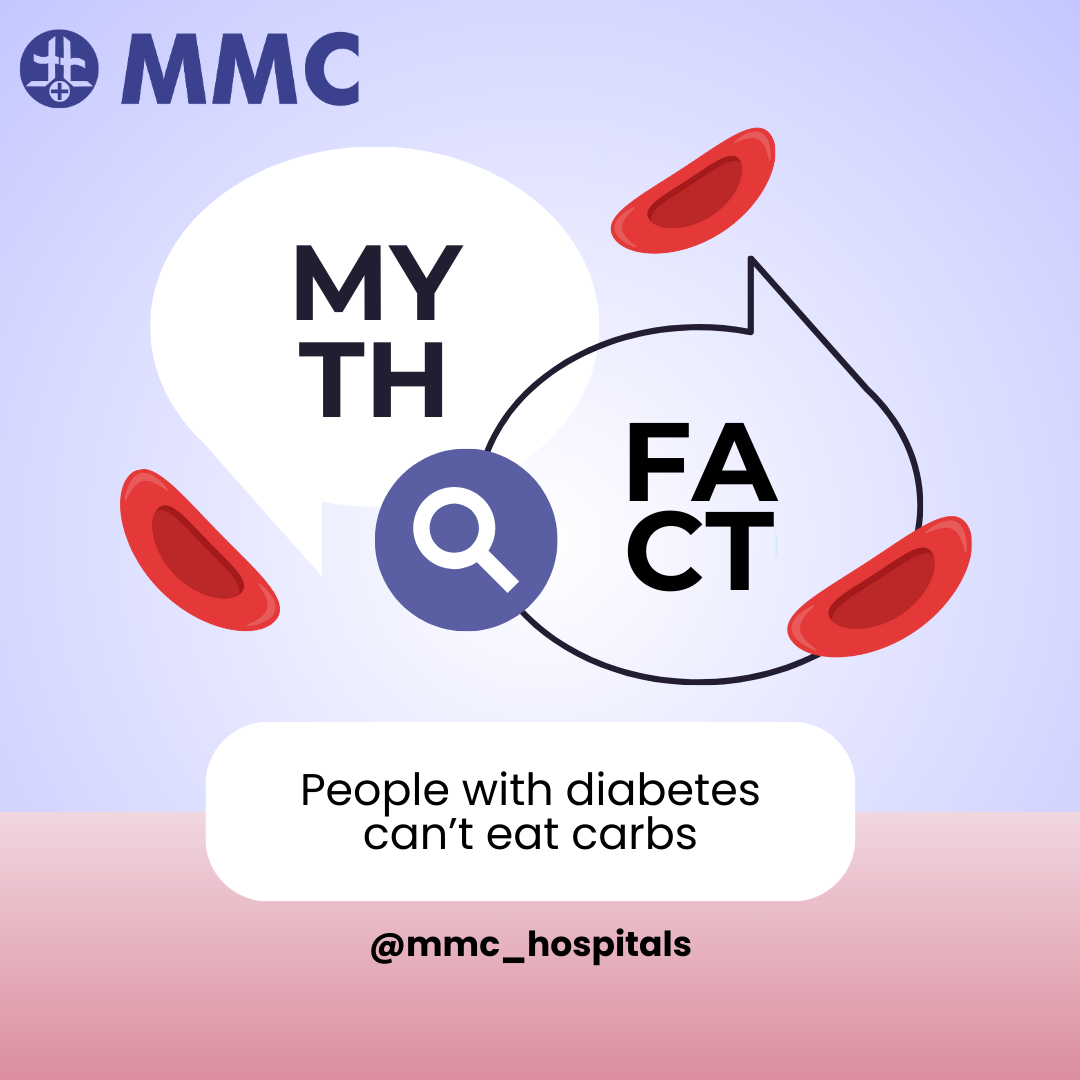
Myth & Fact: People with Diabetes Can’t Eat Carbs - Debunking the Misconception
Published on: March 21, 2025Diabetes is one of the most common health conditions affecting millions worldwide. Despite extensive awareness efforts, many myths still surround diabetes management. One of the biggest misconceptions is that people with diabetes should completely avoid carbohydrates.
At Malda Medical Centre Pvt Ltd, we believe in providing accurate information to help individuals make informed dietary choices. In this blog, we will bust this myth and clarify the role of carbohydrates in a diabetes-friendly diet.
The Myth: People with Diabetes Must Eliminate Carbs Completely
Many believe that consuming carbohydrates leads to uncontrolled blood sugar levels and, therefore, people with diabetes should avoid them entirely. While it is true that carbs affect blood sugar levels, eliminating them completely is neither necessary nor beneficial.
The Fact: Carbs Are Essential in a Balanced Diet
Carbohydrates are the body's primary source of energy. Completely avoiding carbs can lead to nutritional deficiencies, fatigue, and other health issues. Instead of eliminating them, people with diabetes should focus on consuming the right type and portion of carbohydrates.
Types of Carbohydrates: Good vs. Bad
Not all carbohydrates are created equal. Understanding the difference between simple and complex carbohydrates is key to maintaining stable blood sugar levels.
Simple Carbohydrates (Limit These):
Sugary beverages
White bread, pastries, and processed foods
Candies and desserts
Complex Carbohydrates (Include These in Moderation):
Whole grains (brown rice, quinoa, whole wheat bread)
Legumes (beans, lentils, chickpeas)
Vegetables (leafy greens, carrots, sweet potatoes)
Fruits (in controlled portions, such as berries and apples)
How to Include Carbs in a Diabetes-Friendly Diet
1. Portion Control
Balancing carb intake is crucial. The key is to eat in moderation and monitor portion sizes to prevent blood sugar spikes.
2. Pair Carbs with Protein & Healthy Fats
Combining carbohydrates with protein and healthy fats can slow down glucose absorption and help maintain stable blood sugar levels. Example:
Whole-grain toast with peanut butter
Brown rice with grilled chicken and vegetables
Greek yogurt with nuts and seeds
3. Choose High-Fiber Foods
Fiber slows digestion and prevents sudden sugar spikes. Aim for at least 25-30 grams of fiber per day by including:
Whole grains
Nuts and seeds
Vegetables and legumes
4. Monitor Blood Sugar Levels
Regular monitoring helps individuals understand how different carbs affect their blood sugar levels. This way, they can make adjustments accordingly.
Expert Advice from Malda Medical Centre Pvt Ltd
At Malda Medical Centre Pvt Ltd, our experienced dietitians and endocrinologists guide patients on the best dietary practices for diabetes management. We believe in a balanced and customized approach to nutrition.
Book a Consultation Today!
If you or your loved ones are managing diabetes and need professional advice on a healthy diet, visit Malda Medical Centre Pvt Ltd. Our healthcare experts are here to help you live a healthier life.
📍 Location: Malda Medical Centre Pvt Ltd
